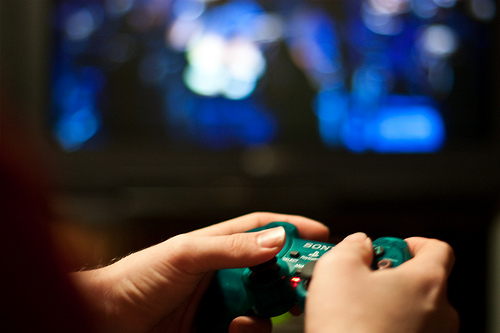By Joel Smart (The Cascade) – Email
Print Edition: March 20, 2013
Few things are as rewarding as getting into a great video game. They can put you in the shoes of others, or allow you to explore worlds and stories in a way no other medium can. But, they also suck up a lot of time.
You can easily sink 50-100 hours into a well-made game. A good movie takes up about two. As we get older and find ourselves in long-term relationships and cursed with the increased responsibilities of living on our own, games almost invariably get moved down the list of priorities. For university students trying to ace their classes, the battle to find time to game can seem overwhelming – but it is possible.
The first step in making time for games is to identify what kind of free time you have, and how you’re spending it. You might have a few hours each evening, or you might have 25 minutes on the bus or train on the way to work or school. That’s going to determine what type of game you can play.
Tina Amini wrote an illuminating article for Kotaku on this very subject, and her first rule was to eliminate games that require an unrealistic time commitment – games like World of Warcraft or EvE Online. While some people can find the time for such games, they’re simply unrealistic for most. If you’re struggling to find the time to game, skip the MMOs and look for games with shorter play-lengths. If you play just one hour a day, you can beat most indie games within a week. That might be a good place to start, if you’re trying to re-introduce gaming into your schedule. Shorter games also allow you to play a larger variety of games, which can make the experience more rewarding.
Amini also suggests a couple of other things to make gaming a more realistic option. If you watch a lot of TV or doing other similar hobbies, try cutting down on that time to play games, rather than adding them on top. As well, try playing the game on the easiest level of difficulty – it’s better than not playing it at all. It’s also important to find games that can be saved easily and often.
Another great tip she suggests is to skip the side quests and other extras that pad out many games’ play time. In other words, if you want to beat Grand Theft Auto, only play the crucial story missions, and don’t get caught up just driving around or trying to get 100 per cent in the game. The key is to progress through games while also playing in smaller chunks.
Lastly, Amini suggests making games a part of your bonding time – find a game you can play with your partner or with your close friends. These multiplayer “dates” let you enjoy gaming, while also allowing you to make time for your loved ones. If you’ve got kids, find a game you can all enjoy together. It’s quality time they’ll remember forever – and it’s fun for you too.
While it’s important to realize that gaming isn’t a top priority, it’s also important to realize that gaming isn’t just a waste of time. It can be a fulfilling experience that expands your creative impulses, gets you thinking and improves your reflexes. If you miss playing games, you can find the time for it. However, being an adult means that gaming needs to be done responsibly. Like most things, it’s all about finding the right balance.


